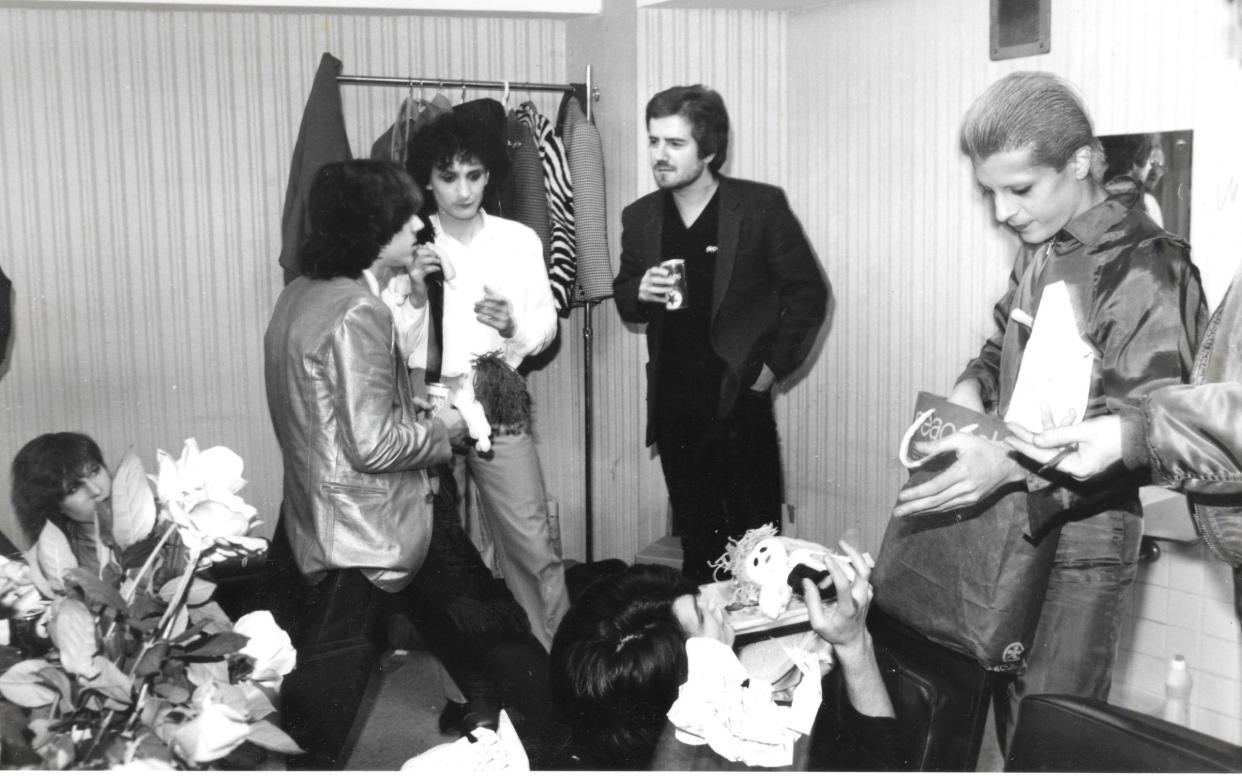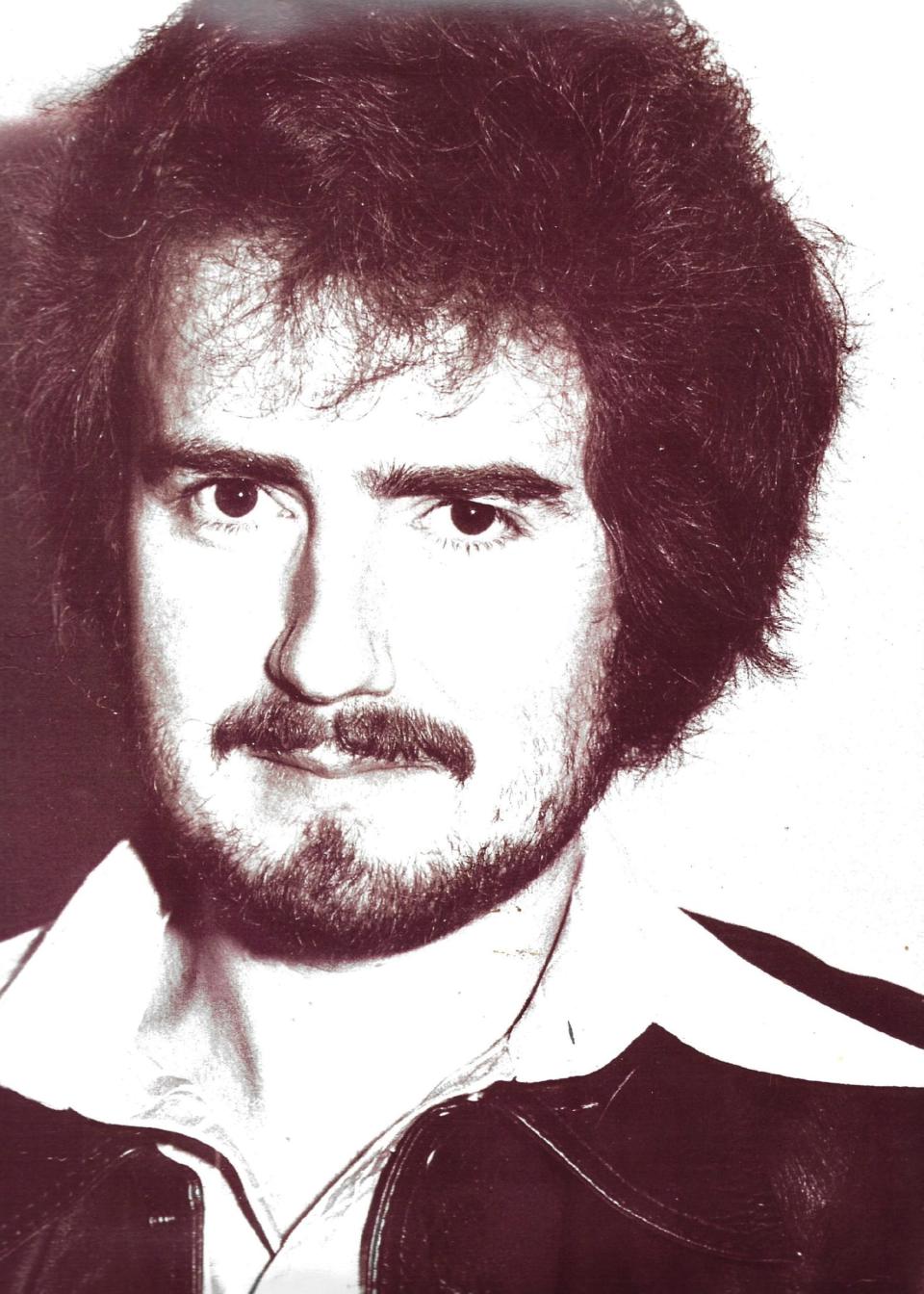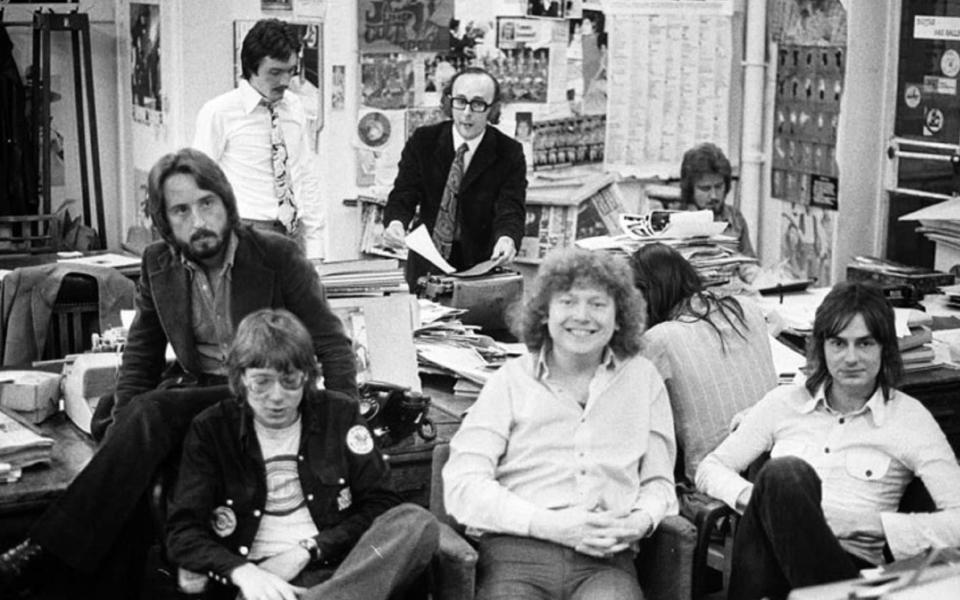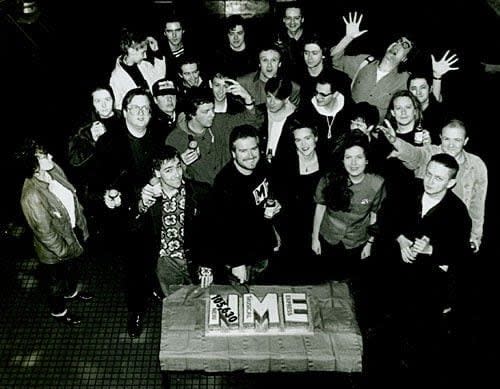Alan Lewis, pop journalist who led NME and Sounds and was the first editor to champion punk rock – obituary

Alan Lewis, who has died aged 75, was a key figure in British music journalism, editing New Musical Express and Sounds and launching offshoot brands including the heavy metal bible Kerrang! and the groundbreaking men’s magazine Loaded.
In an industry peopled by hell-raisers Lewis was a comparative gentleman, reserving his wild side to occasional “ligs” – industry parlance for gratuitous debauches to promote bands. These reached their apogee in the 1970s.
One memorable trip to New York, Los Angeles and Maine (as recounted by his fellow editor Allan Jones) ended in the seaside mansion of an Ariola Records executive whose pride and joy was an elaborate artwork made of historic swords, daggers and lances. Tired and emotional after a solid week of inducements, Lewis pulled at a blade to see how the thing was held together, causing the entire contraption to collapse along with the dining room wall. Music promotion became less excessive subsequently.

Alan Lewis was born on July 2 1945 in Hillingdon in west London to Silvan Lewis, a Welsh engineer, and Doreen Gordon, who had met at EMI’s research centre in Hayes during the war. He shared a bedroom with them until the age of 11. Silvan was a semi-professional singer, appearing in the West End production of Carousel.
Having failed an entrance interview at Sandhurst, Lewis left school in 1963 to join the Railway Passengers Assurance Company as a clerk, meeting friends with whom he would travel by scooter, in Chelsea boots and parkas, to gigs by the pre-fame Rolling Stones, Yardbirds and the Animals. The Who (playing as the High Numbers) were frequently so bad that Lewis and friends would retire to the pub halfway through.
In 1965 Lewis began as a trainee reporter at the Middlesex Advertiser at the same time as the future BBC director-general Greg Dyke. Lewis hated reporting – particularly interviewing the bereaved – but loved sub-editing, and persuaded the editor to let him write a weekly column on soul music.

In 1970 Lewis joined the Melody Maker as a sub, continuing to write about soul. As one of the only writers on either side of the Atlantic to treat it seriously, he secured intimate meetings with giants like Stevie Wonder, Curtis Mayfield and Al Green. He interviewed Tina Turner at the George V hotel in Paris while Ike Turner glowered from the corner and was lectured on race relations by James Brown and his intimidating henchmen backstage at the Apollo (Hammersmith, not Harlem).
In later years he loved to tell the story of Lionel Richie fooling around with some chords as they chatted by a bar-room piano which would turn out, when he heard it on the radio, to be the chart-topping Three Times a Lady.
Lewis’s reputation as a journalist was founded on two things – his instinct for what readers wanted to read, as opposed to what writers wanted to write, and his willingness to take a punt on new talent and ideas. In 1973 he became the founding editor (with a staff of three) of Melody Maker’s offshoot Black Music, the first British magazine to cover reggae and what would later be called world music. It would run until 1984.

In 1975 he was headhunted to edit Sounds, the music paper founded by former Melody Maker colleagues which had not been a huge success. As the first editor to champion punk rock, he tripled its circulation. His biggest regret was being at the pub the day Blondie’s Debbie Harry came into the office to give him a kiss. Instead she left a picture with the instruction, “Kiss this” and an arrow pointing to her pelvis.
While at Sounds, Lewis wrote a disrespectful picture caption about Led Zeppelin’s gangster-like manager Peter Grant, well known for wielding a baseball bat and for throttling promoters. Grant called him the next day, warning him to watch the opening scene of the band’s new film The Song Remains The Same – “and mind that doesn’t happen to you”. Lewis watched the opening scene, a fantasy in which Grant commits multiple murder. He resolved to let somebody else write the captions in future.
After punk, Lewis spotted the next big scene developing around Motörhead, Iron Maiden and Def Leppard – what was termed “the new wave of British heavy metal” – and in 1980 launched Kerrang!, initially as a one-off supplement in Sounds. Edited by Geoff Barton, it would go on to become the UK’s bestselling music weekly.

In 1984 Lewis retired from journalism, and with his wife Carolyn bought the Blue Ball pub at Asheridge in Buckinghamshire, installing an inadvisable trampoline in the beer garden. By 1986 he was back in publishing as editor of the teen pop magazine No 1.
In 1987 he was brought in to reverse the sales decline of the then painfully right-on NME. He put T’Pau on the cover as a statement of anti-elitist intent, horrified the designers with his newspaperman’s “bosh-bosh” approach to lay-out and quickly doubled circulation by lightening the tone and bringing in new writers such as Andrew Collins, Stuart Maconie and Steve Lamacq.
The middle-aged Lewis was an unlikely champion of acid house but commissioned some of the era’s most fondly remembered cover images, like the Stone Roses spattered with paint and Shaun Ryder climbing a giant E. Lewis was often to be seen at Glastonbury sharing a pint of mild with John Peel in shorts, socks and decades-old promotional T-shirts while his staff enjoyed more pharmaceutical refreshments.

Lewis was promoted to editor-in-chief of IPC’s men’s lifestyle titles, winning PPA editor of the year in 1991. In 1994 he launched Loaded with his former NME colleague James Brown as editor. Lewis later remembered that the dummy issue was a brilliant celebration of everything men liked – except women. He advised the team to put some in. It was in profit within three issues and, soon selling over half a million copies, kick-started the “lad mag” genre.
Lewis became an avuncular elder statesman to the next generation of journalists, who pressed him for war stories over post-work pints but seldom remembered the details in passing them on – the story about the wall-sculpture at the executive’s mansion became a blurry legend in which Lewis drunkenly smashed up Neil Sedaka’s (or was it Neil Young’s?) priceless aboriginal canoe.
Other launches in the 1990s included the music magazines Vox, Muzik and Uncut, the food magazine Eat Soup, and the older men’s mag Later. In 2000 he retired again, but by 2003 he was back as editor of Record Collector, a position he held until 2011 when he retired for good.
Alan Lewis, who had been diagnosed with Parkinson’s Disease in 2013, is survived by his wife Carolyn (née Sear) and their three sons.
Alan Lewis, born July 2 1945, died June 23 2021

 Yahoo News
Yahoo News 
